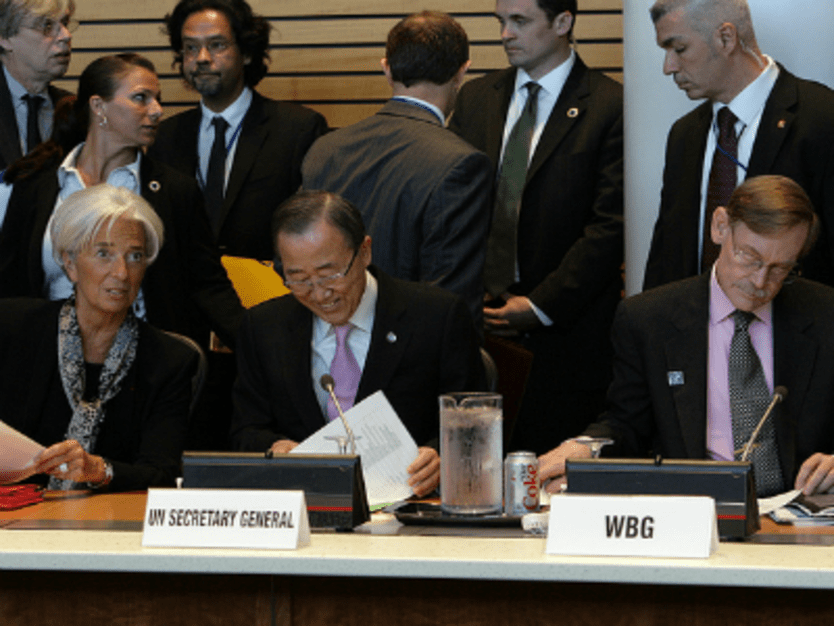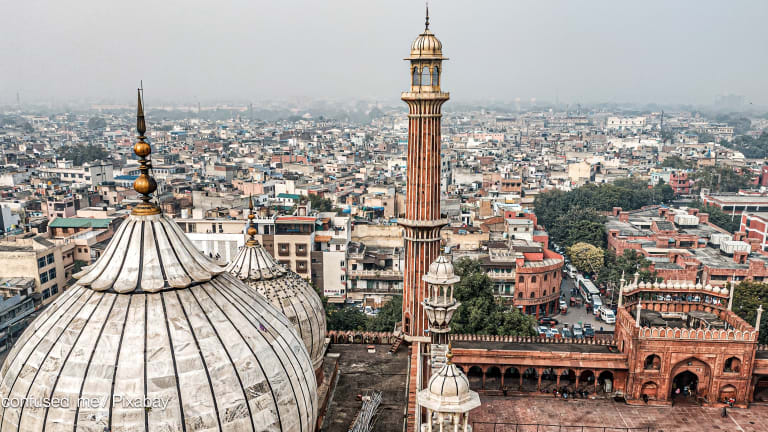
Sustainable development is again on everyone’s lips – and it has been at least since last June, when world leaders converged with environmental champions and development luminaries to discuss ”the future we want” in Rio de Janeiro.
The term sustainable development has been around for a while, even before the first Earth Summit in Rio two decades ago. It took center stage 1987 in a report by former Norwegian Prime Minister Gro Harlem Brundtland and her team of United Nations-appointed experts, collectively called the World Commission on Environment and Development.
“Sustainable development seeks to meet the needs and aspirations of the present without compromising the ability to meet those of the future,” the commission said in “Our Common Future,” which consolidated and analyzed views from various sectors of society around the globe over a period of 900 days.
To some, the idea is simple enough: Countries should pursue economic growth while preserving the environment to meet the needs not only of present but also of future generations. In practice, though, challenges arise because of the diversity of challenges, stakeholders and interests.
Although there remains no single measurement for sustainable development, there exists a global action plan to ensure it is pursued at the local, national and international levels. Agenda 21, which was adopted by more than 170 countries at the Earth Summit, tackles everything from trade and health to population and human settlement.
Going green
To be clear, sustainable development, as oft-described, has three interdependent pillars: economic growth, social development and environmental protection. Indigenous groups have sought to include a fourth pillar – culture.
At a heart of many sustainable development campaigns these days is the spread of innovative, resource-efficient technology.
As a result, green growth has become a byword for sustainable development advocates. The capital needed to advance green growth, though, is high: Some estimates suggest that at an additional annual investment of at least $50 billion would be needed to adapt to climate change and no less than $900 billion to meet the demand for water, land and energy by 2030. Much of the money will be recouped due to subsequent savings from energy efficiency, claims the World Bank, suggesting additional benefits of about $3 trillion per year to the global economy due to a healthier population, the creation of jobs, and higher resilience to conflicts and disasters.
Financial costs, the bank argues, do not present the biggest obstacle to green growth, but governance and market failures, complex political economy, entrenched interests and behaviors, and financing constraints.
“[D]espite much rhetoric to the effect,” the bank has said, “green growth is no panacea and will not substitute for a good business environment and the reforms that are needed to promote growth and protect the poor.”
A global partnership
Accelerating sustainable development is a global objective requiring international cooperation. The aid community mainly gets involved in the financing and technical assistance of projects.
Indeed, the world’s richest countries have been increasing the funding of sustainability campaigns since 1998, the year the Organization for Economic Cooperation and Development began monitoring such flows. In 2010, member states of OECD’s Development Assistance Committee and European Union institutions gave out roughly $33 billion to promote biodiversity, combat desertification and strengthen climate adaptation and mitigation in developing countries. That’s seven times the 1998 level ($4.5 billion).
The private sector has also been ramping up efforts to preserve the environment and help communities in the areas they work in. Today, more than 6,000 companies have joined the U.N. Global Compact, the world’s largest voluntary corporate social responsibility initiative.
Ahead of Rio+20, as the U.N. Conference on Sustainable Development in June is commonly known, some businesses pledged more concrete action and seek partnerships to advance sustainable development. For instance, Schneider Electric pledged to, by 2014, help give 1 million households at the Base of the Pyramid – the world’s poorest – access to energy and have 30,000 people from this demographic trained in energy management. The French firm is already working with public and civil society partners as part of the BipBop program, but it is seeking additional partners to meet its twin targets.
From MDGs to SDGs?
After Rio+20, U.N. Secretary-General Ban Ki-moon created a high-level panel on the post-2015 global development agenda as well as a working group on sustainable development goals. Both will present recommendations this year in an effort to pave the way toward a global framework built on lessons learned from the Millennium Development Goals, which expire in 2015.
“Let us develop a new generation of sustainable development goals to pick up where the MDGs leave off,” U.N. Secretary-General Ban Ki-moon told the General Assembly on Sept. 21, 2011. “Let us agree on the means to achieve them.”
What separates MDGs and SDGs? While MDGs focus on poverty reduction in the developing world, SDGs concern the global environment – making them even tougher to negotiate.
Several sets of SDGs have been floated in recent months. The governments of Colombia, Guatemala and Peru propose five areas of focus, while a coalition of civil society groups has suggested 17 sustainable development goals. Some common themes include food security, clean energy and water.
No lack of opportunities
Specialists in areas related to sustainable development are in high demand by global development employers.
For one thing, every development project requires an environmental impact assessment often performed by a team of environmental, socioeconomic and other experts. For instance, the EIA team for an irrigation and drainage study funded by the Food and Agriculture Organization will likely involve – aside from the team leader – a hydrologist, an irrigation or drainage engineer, a fisheries biologist or ecologist, an agronomist or pesticide expert, a soil conservation expert, a biological or environmental scientist, an economist, a social scientist, and a health scientist.
Visit the Devex jobs board and projects database to browse hundreds of career and funding opportunities related to sustainable development.
Read more:








